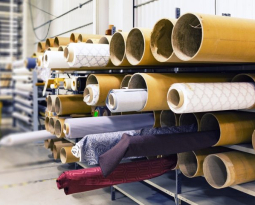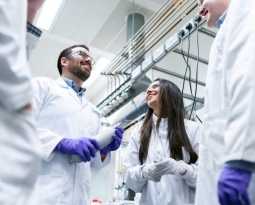Pearlita Foods Unveils Plant-Based Oyster Prototype
While oysters are a delicious treat to many, the practice of oyster farming packs some serious environmental implications. Oyster farming is known to result in a net removal of nutrients from the water column causing a domino effect of environmental damage. Pearlita Foods looked at these impacts and decided there must be a better way.
So they developed the world’s first plant-based oyster prototype which looks and tastes exactly like a traditional oyster.
This cell-cultured seafood startup engaged in a truly extensive process of experimentation to get the right textures and authentic ocean tastes. The result is a prototype made using plant-based and cell-based technologies with a proprietary mushroom and seaweed base. Combining this with Pearlita’s novel flavor mixture is the key to achieving the pure oyster taste.
Their next steps will focus on creating a biodegradable oyster shell to achieve the same experience that comes with traditional oysters. Ofcourse, there would be no need to shuck, making it easier to serve and eat.
The best part? Plant-based oysters offer a solution to meet the global demand without the impact on the ocean. In addition to the plant-based solution, they have been working with a cell-based solution. This alternative can produce fully cultured oysters using an oyster tissue sample. Cells from a sample can be used to produce thousands of cultivated oysters.
While the startup continues its research and development on cultured oysters and biodegradable shells, Pearlita will debut its hybrid plant-based oyster using recycled oyster shells for its showcasing and tastings. In North Carolina, where Pearlita is headquartered, many coastal communities offer shell recycling drop-off locations to build new oyster reefs instead of disposing of the shells in landfills.
Are you developing new technology for an existing application? Did you know your development work could be eligible for the R&D Tax Credit and you can receive up to 14% back on your expenses? Even if your development isn’t successful your work may still qualify for R&D credits (i.e. you don’t need to have a patent to qualify). To find out more, please contact a Swanson Reed R&D Specialist today or check out our free online eligibility test.
Who We Are:
Swanson Reed is one of the U.S.’ largest Specialist R&D tax advisory firms. We manage all facets of the R&D tax credit program, from claim preparation and audit compliance to claim disputes.
Swanson Reed regularly hosts free webinars and provides free IRS CE and CPE credits for CPAs. For more information please visit us at www.swansonreed.com/webinars or contact your usual Swanson Reed representative.

















